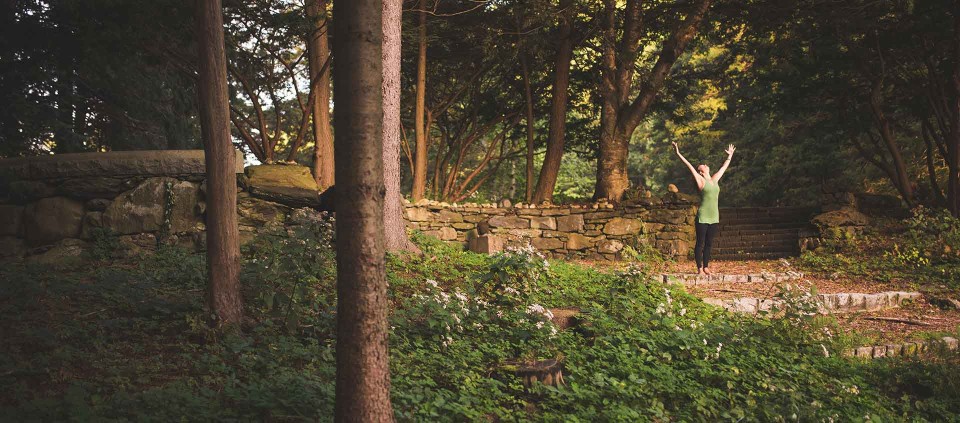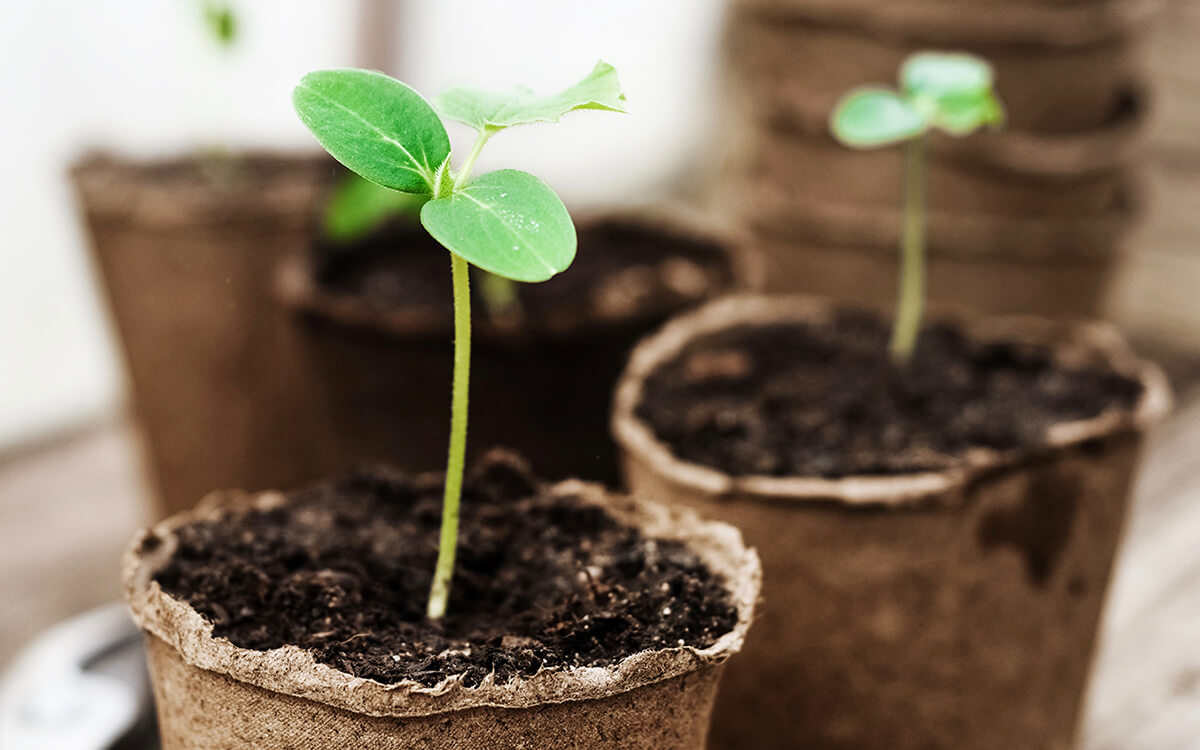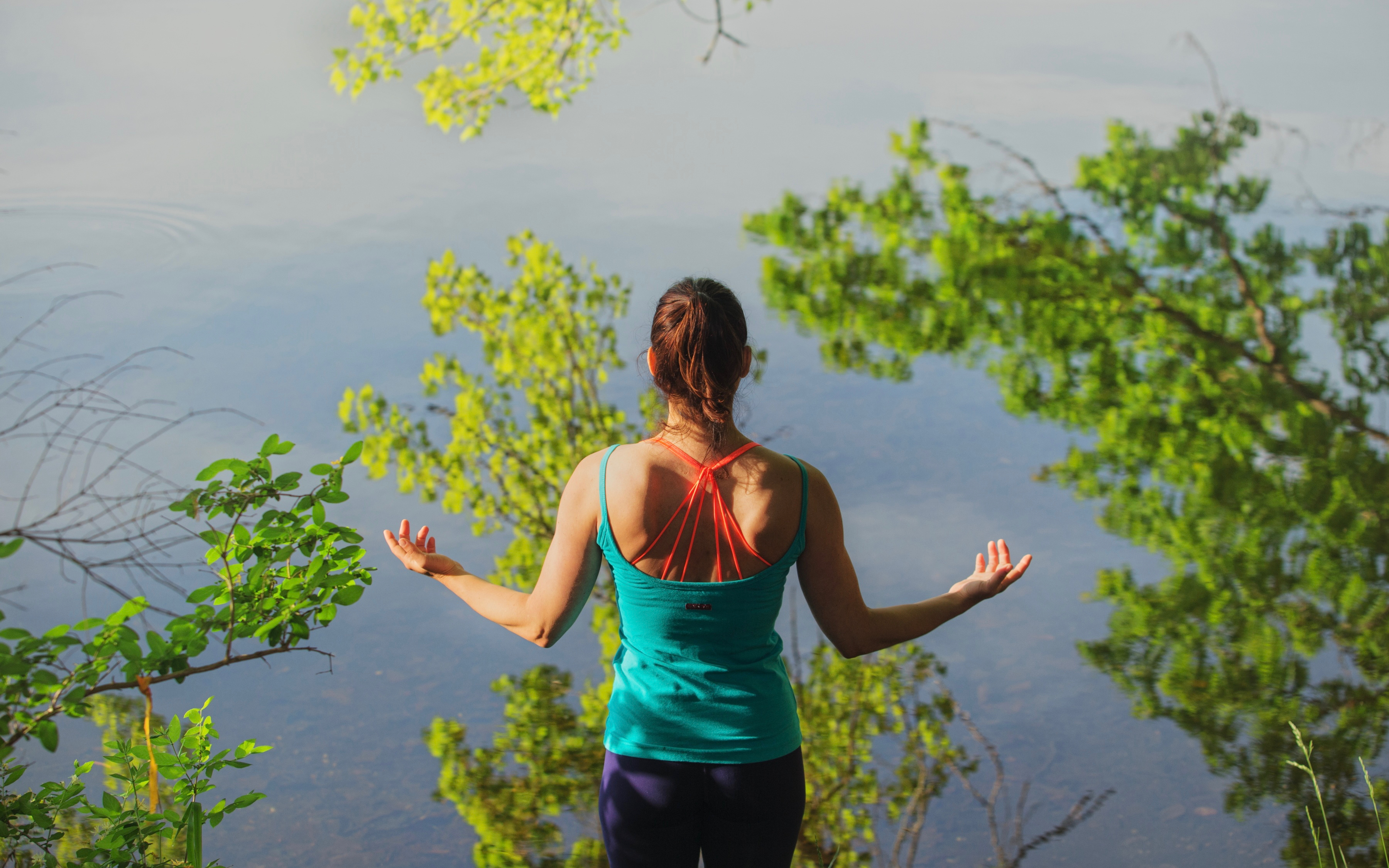Nature Distancing Not Suggested

April 22, 2020
In trying times, we instinctually want to draw together in community. In this trying time, we are being asked to do the opposite. Being isolated from others is not in our nature: Human beings are communal creatures—we evolved in tribes, clans, and families. By necessity these days, screens have replaced face-to-face interaction, more fully than ever before. Excess screen time was a concern before COVID; now we’ve gone into technological overdrive.
In recent years, modern humans have become more and more disconnected from the natural world, as an increasing proportion of our life happens indoors. In a very real way, we have been “nature distancing” for decades, resulting in a host of health issues now known as nature deficit disorder. Our screen-heavy indoor lifestyle has pulled us farther and farther away from our own natural habitat as a species.
This time of isolation and increased screen use, difficult as it is, holds an opportunity to reconnect with the “more-than-human world” of nature. We evolved in deep relationship with this world, and with our many friends and relatives who live there—the trees, birds, insects, and other practically infinite expressions of life force with whom we share this planet.
Read Part 1 of this series:
There is overwhelming evidence that close contact with green spaces is essential to human health, and one of the most powerful ways to connect more deeply with nature is through mindfulness—the practice of coming back to the present moment with compassionate curiosity. We can do this by focusing our attention on nature’s sounds and sensations, as well as our own inflow and outflow of breath. Mindfulness in nature can help us draw closer to the intimate relationship we have with prana, or life force, and with the field of living things that exist in deep reciprocity with one another. Humankind’s love of living things is called biophilia, a term coined by Harvard biologist E. O. Wilson. The painful disconnection from the greater family of living things is now being called “species loneliness,” a term I first came across in the writing of First Nation Potawatomi author and botanist Robin Wall Kimmerer.
Species loneliness is a concept that I extend to all members of our Earth community, animate and inanimate. The separation indicated by these words (some things are alive, others not) has emerged in modern, industrialized cultures; most indigenous, earth-based cultures practice different forms of animism—ways of seeing and being in relationship with one’s environment that acknowledge life and presence in plants and elements as well as animals. In this way of seeing, stones, grass, the wind, a cloud, and flowing water all have their own unique “aliveness.” In this way of experiencing life, the boundaries between the sacred and the mundane break down. We enter a dimension of existence in which an experience of reverent reciprocity is the norm. The web that holds all things becomes perceptible.
Read Part 2 of this series:
This, in my experience, is what is possible when we bring mindfulness to nature. The earth, the sky, the wind, the waters, our winged relatives, and the trees become our teachers. Our perspective is elevated as we begin to receive the wisdom and farsightedness of nature. Its patterns and cycles reflect deep knowing, and impermanence is the only constant. And yet, within nature’s constant change, we find cycles we can rest into; we are reminded that life is a series of waves, a passage and return of seasons.
In this time of great change and transformation, nature distancing is not recommended. Now is the time to draw close to your local land, to sit with and listen to the earth, and to carve out the space and time to receive what is offered. If it is possible for you, consider this a time of reflection and opening, in which new ways of being may emerge. As the tiny seeds of spring germinate and grow into the bounty of summer, so too will the visions that arise in our nature meditations today become the new, much-needed realities of tomorrow.
Micah Mortali is lead Kripalu faculty, the Founder of the Kripalu School of Mindful Outdoor Leadership and author of Rewilding.
Full Bio and Programs
